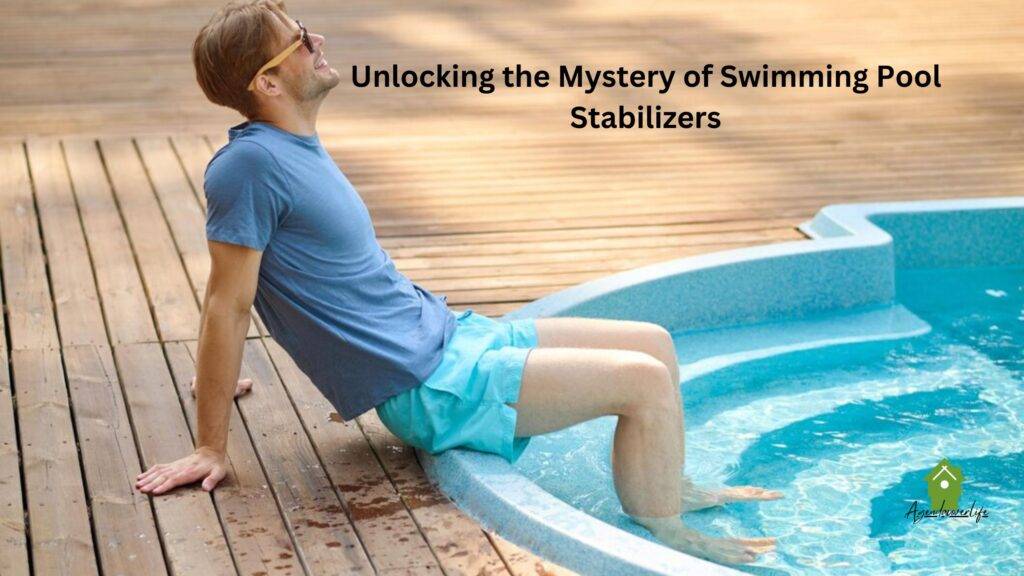
Owning a swimming pool is one of life’s coolest pleasures. It’s all about fun, relaxation, and creating memories with your favorite people. But, there’s some “behind-the-scenes” magic you need to know about to keep your pool sparkling clean and inviting. One of the unsung heroes in pool care is the swimming pool stabilizer. You may have heard this term tossed around, but don’t worry if you’re scratching your head. We’re here to untangle everything you need to know about swimming pool stabilizers and why they’re an absolute must-have for your pool care routine.
What Is a Swimming Pool Stabilizer?
Simply put, a swimming pool stabilizer is like sunscreen for your pool’s chlorine. Chlorine is the superhero that fights off bacteria, algae, and other nasty stuff that ruins your swim time. But, here’s the catch—in a sunny outdoor pool, the sun’s UV rays quickly break chlorine down, making it less effective. A swimming pool stabilizer (also called swimming pool conditioner stabilizer) steps in to protect chlorine from UV damage. It helps chlorine stick around longer, so your pool water stays safe and clean.
The science term for a swimming pool stabilizer is cyanuric acid. But don’t worry about the jargon. Just think of it as “chlorine’s bodyguard.” Without it, your chlorine could vanish in just a couple of hours on a sunny day.
Why Is a Swimming Pool Stabilizer Important?

Now, you might wonder, “Do I really need a swimming pool stabilizer?” The answer is yes! Without it, you’d end up pouring money down the drain because you’d have to add chlorine more often. Here’s what swimming pool stabilizers can do for you:
- Saves Money – By protecting chlorine, stabilizers reduce how much chlorine you need to buy.
- Keeps Water Safe – More chlorine in the pool means fewer germs.
- Reduces Maintenance Time – Less chlorine breakdown means fewer chemicals to add to your pool.
Want to swim stress-free? A swimming pool stabilizer is key.
Types of Swimming Pool Stabilizers
You’ve got choices when it comes to swimming pool stabilizers. Here are the main ones:
- Powdered Stabilizer – This is a popular and easy-to-use option. You add it directly to your pool water.
- Liquid Stabilizer for Swimming Pools – Faster acting and easy to use, liquid stabilizers dissolve quickly in water.
- Stabilized Chlorine Tablets – These combine chlorine with cyanuric acid, so you get a 2-in-1 dose.
Each type has its perks, but they all work to make your chlorine last longer.
How to Test and Maintain Stabilizer Levels
Testing your pool water’s stabilizer levels is super important. If the swimming pool stabilizer levels are too low, your chlorine vanishes in sunlight. If they’re too high, your chlorine may become less effective.
Your ideal stabilizer level is between 30-50 ppm (parts per million). To check this, grab a swimming pool stabilizer test kit. Follow the instructions, and you’ll get a quick read on your stabilizer level.
If levels are too low, you’ll need to add stabilizer to your swimming pool. If they’re too high, drain some water and refill with fresh water, then test again.
Can You Swim After Adding Pool Stabilizer?
Here’s a question I hear a lot: “Can you swim after adding stabilizer to a pool?” The good news is, yes, but there’s a wait. Usually, you can jump in about 12-24 hours after adding stabilizer, depending on how quickly it dissolves. For liquid stabilizers, the wait time is often much shorter. How long after putting stabilizer in a pool can you swim? Always check the product instructions. Typically, it’s safe once the stabilizer is fully dissolved.
Common Problems With Stabilizers
Sometimes, you may run into issues with your swimming pool stabilizer. Here are some common ones and how to deal with them:
- High Stabilizer Levels in Swimming Pools – Too much stabilizer can “lock up” chlorine, making it less effective. To fix this, you’ll need to partially drain and refill your pool water.
- Low Stabilizer Levels – If your levels are too low, chlorine gets eaten up faster than you can say “Marco Polo!” Just add more stabilizer to hit the optimal range.
Tip: Use products like liquid stabilizer for swimming pools or powdered stabilizers to adjust levels more quickly.
FAQ About Swimming Pool Stabilizers
Here are answers to some pressing questions about swimming pool stabilizers that pool owners always ask:
- What does stabilizer do for a swimming pool? It protects chlorine from UV rays, extending its effectiveness.
- Can I swim in a pool with low stabilizer? Yes, but your pool water won’t stay safe for long without enough stabilizer.
- How to stabilize swimming pool water? Test the water, add stabilizer if needed, and retest to ensure you’re in the right range.
- What happens if stabilizer is too high? Water may become murky, and chlorine will become less effective.
Tips for the Best Pool Care
To keep your pool in tip-top shape, stabilizers are just part of the equation. Regular maintenance matters too. Follow these tips for a worry-free pool season:
- Test your water weekly using a swimming pool stabilizer test kit.
- Keep your stabilizer levels in check.
- Balance your pool’s pH and chlorine to avoid problems.
- Use high-quality products like natural chemistry liquid swimming pool stabilizer and conditioner for better results.
And hey, don’t forget to check out sites like agendacoverlife.org for more agendacoverlife.org cleaning tips, agendacoverlife.org home improvement ideas, and even agendacoverlife.org maintenance and repairs advice. They’ve got plenty of helpful info to keep your backyard oasis looking its best!
Wrapping It Up
Understanding swimming pool stabilizers doesn’t have to be overwhelming. They’re like the quiet sidekick to chlorine, working behind the scenes to keep your pool clean, safe, and fun. They save you money, reduce maintenance headaches, and make your swimming experience way more enjoyable.
By testing your water, maintaining the right stabilizer levels, and acting quickly if issues arise, you’ll keep your pool in perfect shape. Whether you’re lounging with a fruity drink or playing an intense game of water tag, the magic of stabilizers is what makes it all easier.
Plus, next time someone asks, “What does swimming pool stabilizer do?” you’ll have all the answers. Happy swimming!









